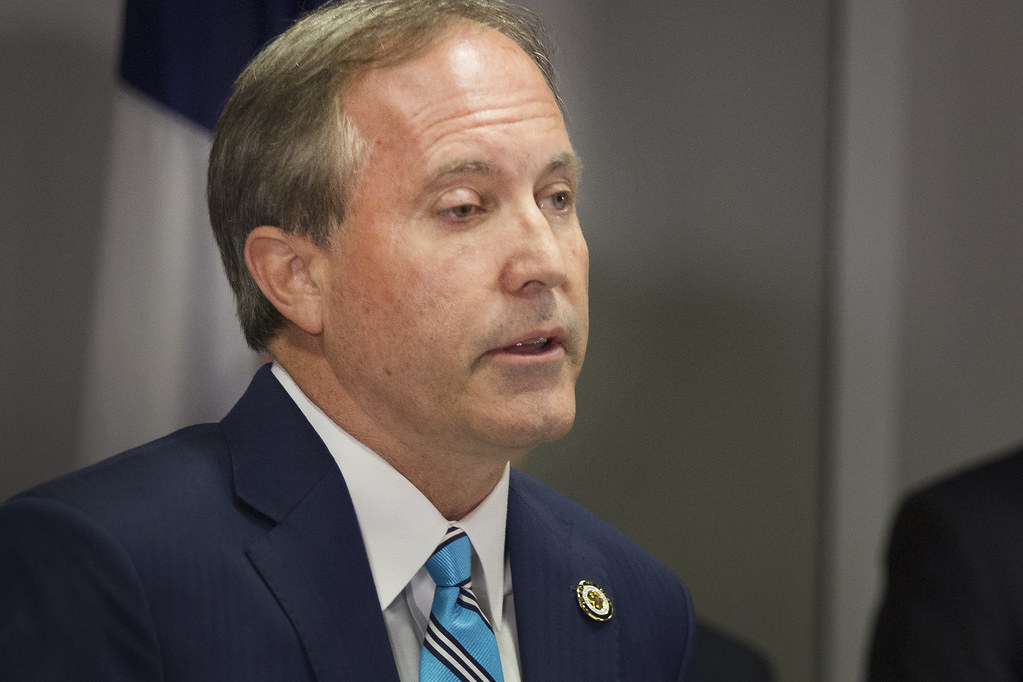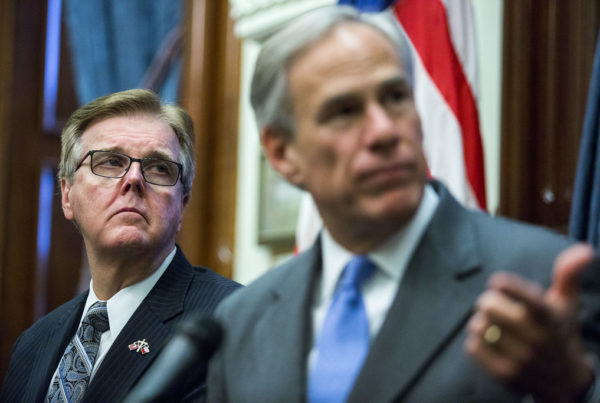An appeals court ruled Thursday that a group of former employees of the Texas attorney general’s office is entitled to protection under whistleblower protection laws.
Eight top aides to Texas Attorney General Ken Paxton resigned or said they had been driven to leave the AG’s office after making allegations that Paxton was using the office to benefit a political donor.
Last November, four of those officials filed a whistleblower suit against Paxton, seeking compensation for lost wages and other damages. Paxton tried to get the case dismissed, claiming that the Whistleblower Act does not apply because the attorney general is an elected official, not a public employee. A lower court denied Paxton’s attempt to stop the whistleblower case,
Taylor Goldenstein, Austin bureau reporter for the Houston Chronicle, has been following the case. Listen to the interview above or read the transcript below to learn more about why Texas’ Third Court of Appeals says the former employees’ case can go forward.
This transcript has been edited lightly for clarity:
Texas Standard: What did the appeals court have to say about the attorney general’s claims that the Whistleblower Act didn’t apply to him?
Taylor Goldenstein: Well, they did not buy the argument that he was not the intended subject of this law. And they basically hypothesized that if they had taken that interpretation, thousands of employees would not be protected from reporting instances of criminal activity or really any kind of unethical things that they saw happening.
What does this ruling mean as a practical matter?
Goldenstein: This is at the appellate level. Technically, what would happen next is this would go back down to the trial court and they could continue their case. What may happen – we don’t know yet – [is] the state will either ask for a rehearing from the whole court or they could appeal to the Texas Supreme Court. So it’s likely not over, but we’re kind of waiting on the state to see their next move.
The Whistleblower Act specifically refers to employees who are pointing out that higher-ups have tried to commit some kind of illegal activity. Have there been any charges filed here? Has there been any sort of criminal investigation of these allegations?
Goldenstein: Yeah. We know that the FBI is investigating. I imagine that it’s still going on, so that’s to be determined.
What does this mean for the attorney general, who’s seeking reelection next year? Do you think that this has any sticking power, politically speaking?
Goldenstein: Well, it’s definitely not a good precedent for him in terms of the case, and we saw him yesterday announcing a new lawsuit, trying to get the border wall built. So you can tell he’s kind of trying to change the subject, if you will. I’m guessing that they will continue to use other issues to try to put that out in front of voters instead of putting attention on this case.
And we should point out that in his six years in office, he’s been beset by a cloud of allegations related to securities fraud.
Goldenstein: Right. That’s another part of the cloud of legal trouble hanging over his head. That case is still going. It has yet to go to trial after more than five years. But again, that’s something that, you know, voters are aware of.
What does all of this mean for those former employees in the attorney general’s office who brought this suit in the first place?
Goldenstein: Well, their lawyers say that they’re ready to go back to the lower court and finally have their time to say their piece in court. Two of them are seeking reinstatement to their jobs and all of them are seeking damages.
Though the court rejected Paxton’s claim not to be bound by whistleblower protections, I think some listeners will say, “Isn’t Texas an employment-at-will state? Can’t people just be fired for any reason?”
Goldenstein: Yes, and the court acknowledged that. But they also said that there is a need to have a law like this, to make sure that people who are in the situation – whistleblowers – have a way to report things that they need to report without fear of losing their jobs.















